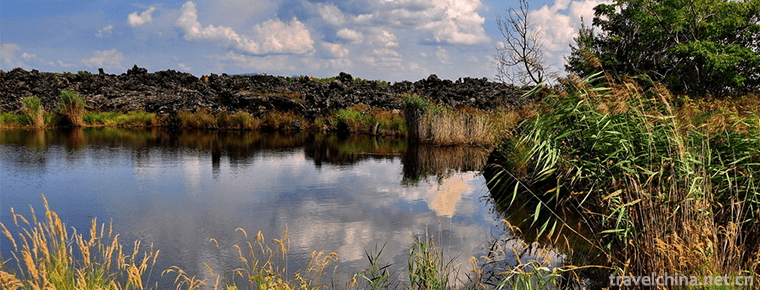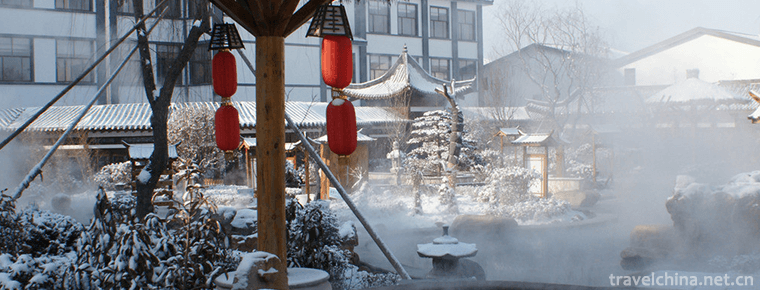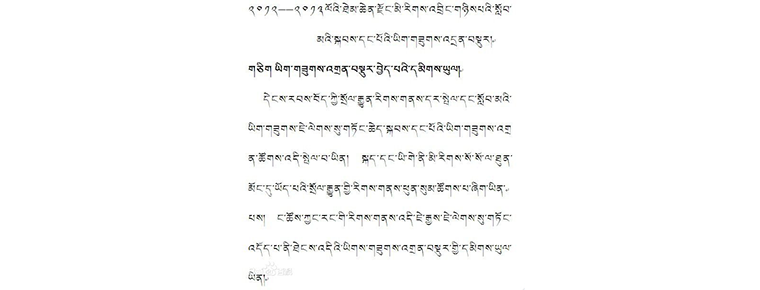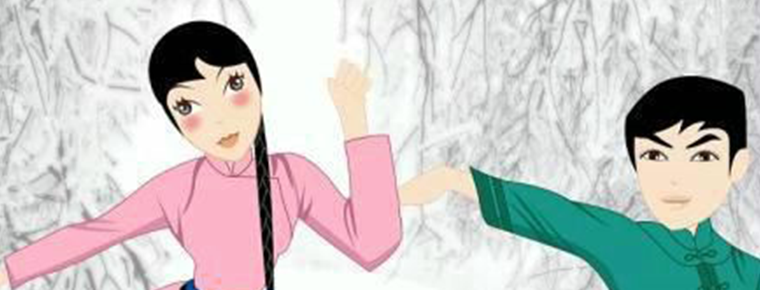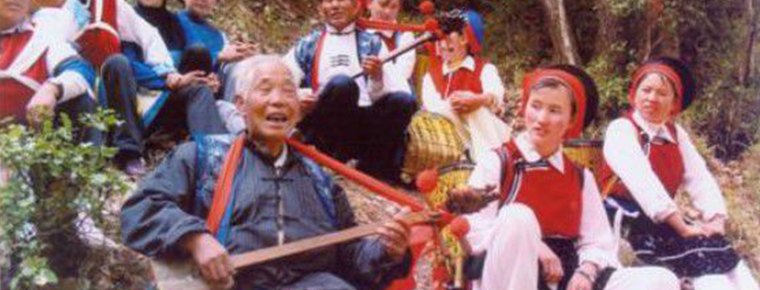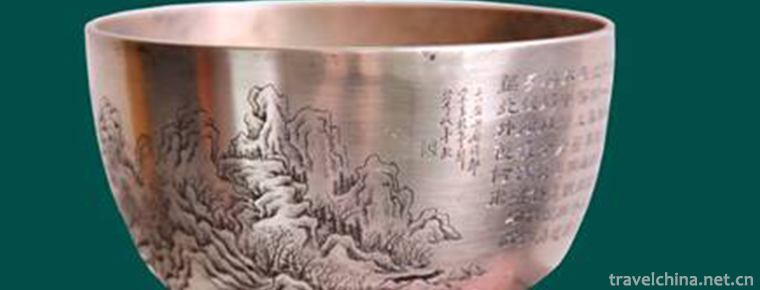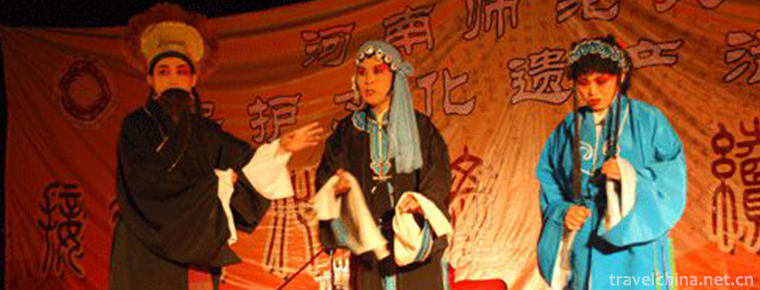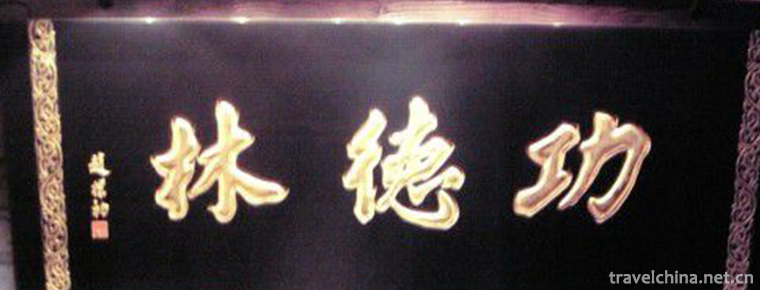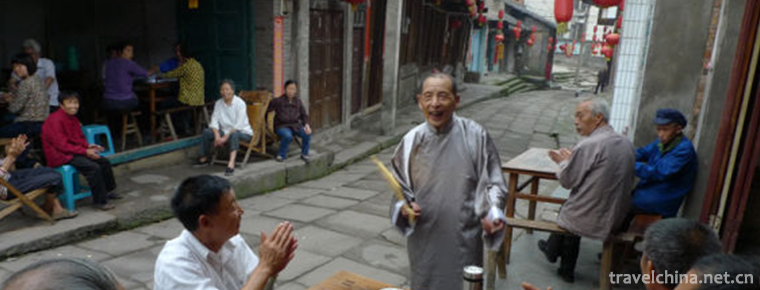Mongolian Wedding
Mongolian Wedding
Mongolian young men and women marry on auspicious days, and men give gifts to women's homes. The gifts include cash, clothes, cloth, jewelry, rice and so on. There are cabinets, bedding, clothes, jewelry, electrical appliances, bicycles, rice, melon seeds and so on. The key is kept by the woman's family. When the bride arrives at the man's house, the bridegroom's mother takes money to redeem the key and gives it to the bride. On the day before marriage, the man will send the pork and wine with red paper to the woman's home as a gift and let the woman's home be used to entertain guests.
introduce
The traditional wedding custom of Mongolian people has a long history and has been handed down from generation to generation in Qiangoruoros Mongolian Autonomous County. Since ancient times, the local Mongolian people have always maintained the traditional marriage customs with the ancient Mongolian characteristics of Guoerros. In the clan society, Mongolians believed that all members of the clan came from a common ancestor, and that they could not marry and marry within the clan, especially the princes and nobles. Mongolian grassland is vast and scattered, marrying a wife or marrying a daughter has to go far away. The daughter does not know when and when she will meet her parents, brothers and sisters again after she marries. Therefore, marriage becomes a happy event for men and women to marry and a sad event for their relatives to separate. The Mongolian people are good at singing and dancing. When they marry, they naturally use singing to express their joy and sorrow. Thus, a wedding song comes into being. After a long historical process, a semi-professional wedding congratulator came into being. The man and the woman "Helmochin" had singers and "Helmochin" on both sides, and gradually formed the wedding custom in accordance with the sequence of wedding activities and the singing throughout the whole process.
Regional Ethnic Groups
Mongolian is one of the inhabited minorities in Qinghai. It entered Qinghai in the 1920s. According to the fifth census, there were 88 829 people in 2000, accounting for 1.71% of the total population of the province, mainly distributed in Delingha, Golmud, Dulan and Ulan counties of Haixi State, Henan Mongolian Autonomous County of Huangnan State, Qilian County, Haiyan County and Menyuan County of Haibei State, as well as Xining City, Hainan Prefecture, Haidong District, Datong County and some areas of Haixi Mongolia Autonomous Region. Family.
Tibetan Autonomous Prefecture and Henan Mongolian Autonomous County. Qinghai Mongolian belongs to the Weilat dialect of Mongolian language, which is basically consistent with the Mongolian language with Zhenglan Banner as the representative of Chahar pronunciation as the standard. But it also has its own characteristics; the written language uses "Hutumu" Mongolian, that is, the same language with Mongolians in Inner Mongolia, Heilongjiang, Jilin, Liaoning and other provinces and regions. Mainly engaged in animal husbandry production, grazing by water and grass, operating sheep, goats, horses, yaks, camels, etc., residential garden-type felted tents "yurts", warm in winter and cool in summer, easy to move and withstand the fierce sun and cold; part of the agricultural production in small agricultural areas and Eastern Agricultural areas, residential villa-style civil structure houses. Its costumes are different from both Tibetans and Mongolians in Inner Mongolia because they have lived with Tibetans and Han nationalities for a long time. Both men and women wear "Dewu Day" (long leather gown) in winter, mostly suede for clothes, Lawu Xiege (jacket) in summer and autumn, and "Wuqi" for festivals or guests (lambskin gown with satin or velvet, with otter leather edge or colored bat edge), all wearing silk belts. Poria tea is an indispensable habits of Mongolian people. Qinghai Mongols are good at singing and dancing, hospitable and gracious. They like wrestling and horse racing. They believe in Buddhism and generally worship the Gelug School of Tibetan Buddhism.
Characteristics of Marriage Customs
The marriage custom of the Mongolian people begins with courtship. The man must courtship the woman's family many times before he can get the promise of the woman's family. There is a proverb of the marriage custom of the Mongolian people that "asking for more is expensive, asking for less is cheap." After reaching an agreement, the man takes Hada, milk wine and sheep to the woman's house to "hire them down", and the woman invites relatives and friends to accompany the guests to drink, which indicates the formal engagement.
Mongolian engagement gives many gifts
If a Mongolian boy has a crush on a girl, before his engagement, he should ask the matchmaker to carry the symbols of harmony, sweetness, exuberant sugar, tea, glue and other things, wrap a white handkerchief and go ahead to pick it up. If the woman accepts it, the marriage can be carried out. Afterwards, the husband's parents and himself will propose with gifts such as Hada, milk and candy, usually several times before they get engaged. After the woman receives the engagement, the man also delivers three drinks to the woman. If the woman receives all the three drinks and drinks them, the marriage will be decided. When approaching the wedding date, the man will give the woman a gift, usually boiled a whole sheep, as well as wine, tea, Hada. The woman warmly welcomed the giver, toasted both sides, praised auspicious sentences, and celebrated the song.
The groom was challenged by a broken sheep's neck
After arriving at the bride's home, the Mongolian groom in Ordos and the welcoming party are always treated as guests by the bride's family. They eat, drink, sing and dance together. It's very lively. At this time, the man will quietly leave the banquet and lead the bride to the bride's room. When they are seated at the guest table, the bridesmaids will bring up a cooked sheep neck to entertain the groom, and ask the groom to break the sheep neck from the middle to test the strength of the groom. In order to tease the groom, the bridesmaids had cleverly inserted a red willow stick or an iron stick into the bone marrow canal of the sheep's neck. If the groom had been instructed beforehand, he would know the secret, take out the willow stick or iron stick, and easily break the sheep's neck. Some grooms do not know the secret, so they try their best to sweat like a dog biting a turtle, anxious and ashamed. The bridesmaids take the opportunity to make fun of the groom with bitter but malicious language.
Fight for the first place on the way to marriage
On the way to marriage, according to custom, each other wants to get home first, and both men and women chase and tease each other. Sometimes the bridegroom's hat is grabbed by her loved ones, picked on the whip, or thrown on the ground. The bridegroom can't get off the horse and pick up the hat, which delays the time. Sometimes, the wise man also has a way, not far from the bridegroom's house to set up a table to entertain relatives, but the woman is so kind that she has to get off and drink, and the man takes the opportunity to rush home. Along the way, such a galloping horse, you chase me, the atmosphere is warm.
No worship of heaven and earth, no worship of fire
The day of marriage is chosen by the man who kills chickens and divines. On that day, the girl was sent to the bridegroom's house by her parents and the introducer. The groom's House prepares wine and meat. When the bride arrives, she holds a knife with the groom and kills a chicken to see if the chicken liver lines are good or bad. If not, each bride and groom kills another chicken until the chicken liver lines are good or bad. Then, the bride and groom hold a drinking ceremony, each person put a bowl of wine in front of the bowl, butter on the edge of the bowl, drink a mouthful of their own first, then drink a glass of wine. When the bride and groom have finished drinking, they also entertain the introducer and all the guests. Then the guests and relatives and friends who came to congratulate each other continued drinking, singing and dancing until the end of the night.

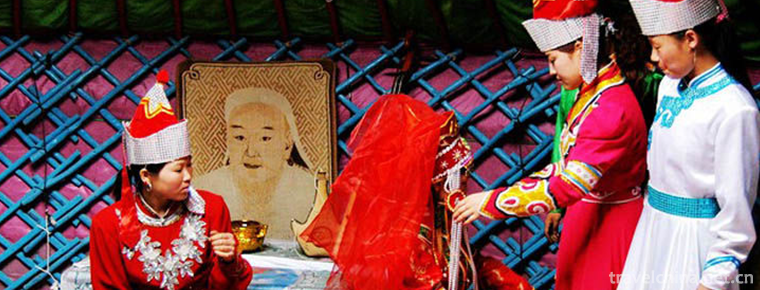
-
Tiger Leaping Gorge
Tiger Leaping Gorge, known as "danger", is one of the deepest canyons in China.
Views: 245 Time 2018-10-17 -
Jingpo Lake
Jingbo Lake: National AAAAA-level tourist attractions, World Geopark, National Key Scenic Spots, International Ecotourism Resort, National Civilized Scenic Spots Demonstration Sites.
Views: 234 Time 2018-12-05 -
Shandong Zhisheng Tangquan Tourist Resort
Shandong Zhisheng Tangquan Tourist Resort is located in Linyi City, Shandong Province. It is invested and constructed by Shandong Chenshi Home Estate Co., Ltd..
Views: 420 Time 2019-02-08 -
Tibetan calligraphy
Tibetan calligraphy is an important part of Tibetan culture and art. In the seventh century AD, during the Zampson Zangganbu period of Tubo, minister Tunmi Sampuza absorbed the advantages of different.
Views: 148 Time 2019-04-05 -
Xiling mountain song
Xiling Mountain Song is a national intangible cultural heritage with a long history, primitive simplicity and smooth melody. Its color and mode contain some elements of Tibetan, Qiang and Han folk son.
Views: 351 Time 2019-04-19 -
Jianchuan Opera
Jianchuan Baiqu is an ancient music variety with a long history and wide spread in Bai nationality area. It is mainly popular in Jianchuan, Eryuan and Tongdian, Jinding and Jiuhe of Lanping County, Nu.
Views: 309 Time 2019-05-05 -
Cutting Copper Dus Cutting Copper
Painting inscriptions on bronze pots, smooth lines; beautiful paintings of mountains and rivers on bronze plates, such as immersion... In many people's eyes, Du's bronze engraving, .
Views: 257 Time 2019-05-09 -
Falling cavity Luoqiang
Luoqiang is a traditional opera in Neihuang County, Anyang, Henan Province. It was originally called Luoziqiang, also known as Anyang Qiang. It is mainly prevalent in the Zhanghe River Basin in the no.
Views: 350 Time 2019-05-15 -
Vegetarian production skills
Gongdelin vegetarian food originated in temples. During Tongzhi period of Qing Dynasty, Temple vegetarian food gradually entered society. In 1922, the disciples of Wikipedia, a Buddhist monk at Changj.
Views: 291 Time 2019-06-17 -
Folk Stories of Zouma Town
Folk stories of Zouma Town, Jiulongpo District, Chongqing City, are spread in Zouma Town. The exact age of its origin can not be verified. However, the Zouma Town was established in the late Ming and .
Views: 495 Time 2019-08-16 -
Suining famous specialty
Suining City has Shehong Medina beef, Daying white lemon, Chuanshan bean curd peel, Anju golden pear, zhuotang well salt, da'anshu beef, Chicheng lake fish mat, shehongyexiang pig, Anju 524 sweet potato, Pengxi green pepper, Pengxi Xiantao, qiaoguanying .
Views: 331 Time 2020-12-16 -
Plant resources in Nanchong
There is only one kind of Metasequoia glyptostroboides introduced and cultivated in Nanchong City; there are two kinds of wild protected plants, namely, fragrant fruit tree and narrow leaf pygmy grass, and two kinds of cultivated Ginkgo biloba and Eucommia.
Views: 356 Time 2020-12-17

